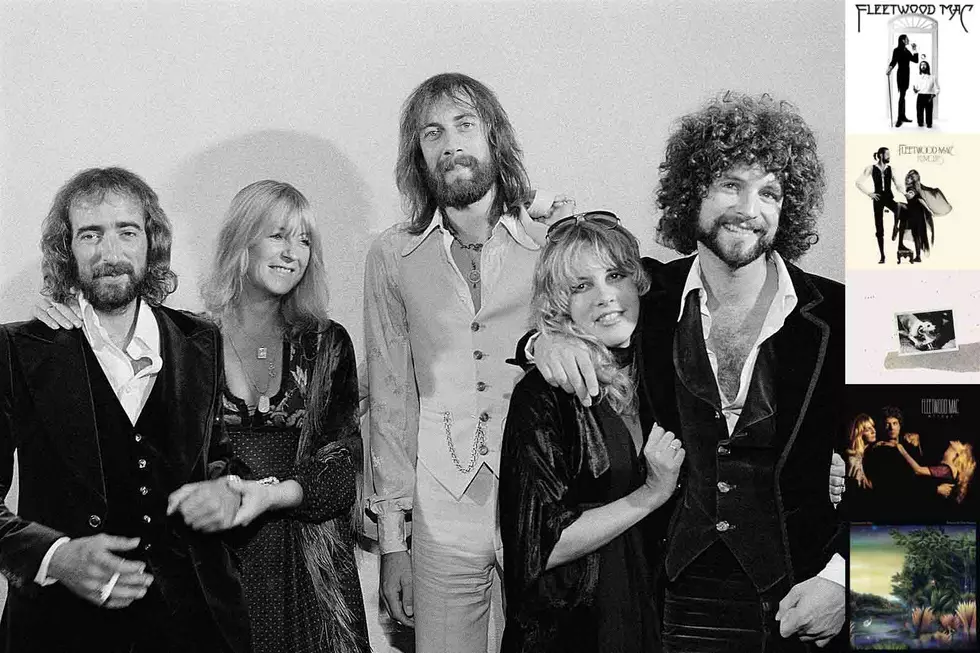
Fleetwood Mac, ‘Tusk: Deluxe Edition': Album Review
Had Fleetwood Mac played it safe after Rumours, they probably could have made another gajillion-selling album. Instead, they handed the reins to singer and guitarist Lindsey Buckingham and allowed him to steer the follow-up to one of the 20th century's biggest LPs to wherever he wanted (with a few detours along the way).
The result was 1979's double-LP Tusk, a much-delayed, over-budget and sprawling masterwork that often played out like Fleetwood Mac's version of the Beatles' White Album: three distinct singer-songwriters hashing out their solo compositions while the rest of the group played backing band. And it was, if you believed what you read at the time, a total bomb.
But 36 years later, Tusk stands as one of rock's most underrated and rewarding albums, a complex and layer-revealing work that offers new perspectives and treasures with each listen. A new five-disc Deluxe Edition doesn't so much give fresh insight to the record as it provides a behind-the-scenes peek at its formation and development, as well as the occasional struggles the band endured during its long and difficult birth.
The original two-LP set is expanded with discs of single remixes, outtakes, session leftovers, live cuts from the 1979-80 tour in support of the album and the entire record made up of mostly previously unreleased versions of the 20 songs. It's as often fascinating as it is repetitive: Even for an album built on textures and detailed studio assembling, multiple takes on the title track and "I Know I'm Not Wrong" begin to get tedious after the fourth pass.
Still, alternate versions of "Over & Over" (the ambiance-soaked Christine McVie ballad that opens the album), "The Ledge," "That's All for Everyone" and "Brown Eyes" (with early member Peter Green prominently sitting in) show just how meticulous the recordings were ... and just how much the band was slowly unraveling. Buckingham is clearly in control here, injecting flashes of weirdness and brilliance into the project. Stevie Nicks' contributions tend to be the least affected by his mad-scientist tinkering, but even they go deeper than Rumours' most intricate tracks.
Tusk: Deluxe Edition doesn't show us much in the way of how skeletal demos evolved into multi-layered art pieces, though -- it's not that kind of box. If anything, it leads us to believe that most of these songs were fully structured by the time Fleetwood Mac began recording. And radio mixes of "Think About Me" and "Not That Funny" prove that even after the LP's release, some cuts took on even newer forms.
It's a lot to get through -- more than 80 songs in all -- and parts of it seem like padding (the live tracks, mostly from 1975's self-titled album, Rumours and Tusk, sound diluted without their studio adornments). But the original album is worth diving into again, if only to revisit one of the era's most undervalued works, a bold record made by a superstar band willing to risk its place at the top for its art.
Fleetwood Mac Albums Rated Worst to Best
Rock's Most Underrated Albums
More From Ultimate Classic Rock









